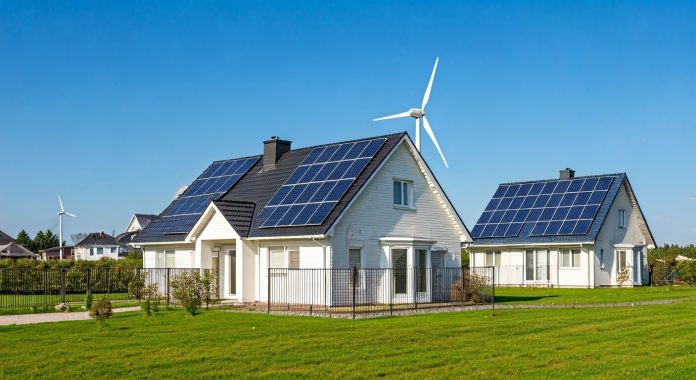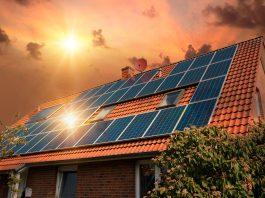As the global push for sustainable energy intensifies, the SERENE project is making significant strides in transforming local energy systems across Europe.
Funded by the European Union’s Horizon 2020 research and innovation programme, SERENE is pioneering integrated energy solutions that enhance efficiency, sustainability, and community engagement.
The latest updates from SERENE’s demonstration sites in Denmark, the Netherlands, and Poland reveal how these initiatives are shaping the future of energy at the local level.
We take a look at the findings of the project’s latest newsletter to uncover SERENE’s latest developments and progress.
Scaling up smart energy systems
SERENE’s primary focus is on developing local Energy Management Systems (EMS) that alleviate grid congestion and optimise energy use.
In the Netherlands, the project is addressing the challenges posed by increased electrification and solar PV generation.
Through collaborations with the University of Twente, Saxion University of Applied Sciences, and tech firm Loqio, SERENE is implementing advanced algorithms and smart technologies to manage energy consumption more effectively.
These innovations will be highlighted at key industry events, including the Smart Energy Systems Conference in Aalborg, Denmark, and the inaugural Smart Energy Hubs Conference in Enschede, the Netherlands, both scheduled for later this year.
These conferences will serve as platforms for sharing the project’s findings and exploring further applications of these technologies in larger urban and industrial settings.
Denmark’s Hyllegård Høje: A model for renewable energy integration
In Denmark, the Hyllegård Høje Energy Community is setting a new standard for renewable energy integration and has been selected as the latest demonstration site for the SERENE project.
This community has implemented a cutting-edge energy infrastructure that includes building-integrated photovoltaic (PV) systems and an innovative 5th-generation district heating system known as Termonet.
The system’s 30 km of uninsulated underground pipes serve as the primary energy source for ground-source heat pumps, ensuring efficient heating and hot water supply.
The energy management in Hyllegård Høje is handled by NEOGRID’s Community Energy Management System (CEMS), which uses data-driven models to forecast and optimise energy use.
This dual-grid system separates household energy needs from community-wide assets, such as EV charging stations and central battery storage, allowing for more precise energy management and greater sustainability.
With the completion of Phase A expected by the end of 2024, Hyllegård Høje is poised to become a leading example of how local energy systems can be both sustainable and scalable.
Milestone reached at Aardehuizen, Netherlands
The Dutch demonstrator, Aardehuizen—also known as ‘Earth houses’—has achieved a critical milestone with the full installation of its energy measurement setup.
This system, developed over three years, includes smart control algorithms that optimise energy usage based on predictions and real-time data.
These technologies are designed to minimise interaction with the national grid, reduce CO2 emissions, and maximise financial returns from locally produced energy.
The project is now entering a validation phase that focuses on both technical and social optimisation.
The technical component aims to fine-tune energy consumption within the community, while the social aspect explores how real-time data and recommendations can influence residents’ behaviour.
This dual approach underscores SERENE’s commitment to not only advancing technical solutions but also fostering active community participation in the energy transition.
Przywidz, Poland: Overcoming challenges and advancing local energy systems
In Poland, the SERENE project continues to progress in the Przywidz Municipality, despite recent changes in local government leadership.
The newly elected mayor has shown strong support for the initiative, participating in presentations and discussions about ongoing developments.
One of the key achievements in Przywidz is the integration of a Vanadium Redox Flow Battery (VRFB), which provides a stable energy storage solution that is crucial for balancing local energy production and consumption.
Additionally, the project has introduced an all-in-one Energy Storage System (ESS) developed by STAY-ON.
Installed at a local kindergarten, this system combines batteries, an inverter, and an energy management system, making it easier to implement and manage.
The ESS is designed to store excess energy from photovoltaic installations and use it during peak demand periods, enhancing the resilience of the local energy system.
Engaging communities in the energy transition
A central goal of the SERENE project is to actively involve local communities in the energy transition.
In Przywidz, this has been achieved through a series of public meetings where residents have been informed about new energy installations and encouraged to engage in discussions about the future of local energy systems.
These events have emphasised the importance of energy storage technologies and their potential benefits for both individual households and the broader community.
The project has also focused on reaching younger audiences, with Polish partners participating in the EDU Offshore Wind Fair in Gdańsk.
This event provided an opportunity to discuss the future of green energy jobs and the role of innovative energy systems like those developed by SERENE.
SERENE project future objectives
As the SERENE project moves forward, the upcoming conferences in Aalborg and Enschede will be crucial for disseminating the project’s findings and exploring opportunities for scaling these innovations.
The progress made in Denmark, the Netherlands, and Poland demonstrates the potential of local energy systems to drive Europe’s energy transition.
SERENE’s work is not just about technology; it’s about empowering communities to take control of their energy futures.
By integrating advanced energy management systems with active community engagement, the project is paving the way for a more sustainable and resilient energy landscape across Europe.
The SERENE project is proving that local energy systems can play a vital role in the global energy transition.
Through its innovative approaches and community-focused initiatives, SERENE is setting a new standard for how energy systems can be designed, implemented, and managed at the local level.
As the project continues to evolve, its impact on sustainable energy practices is expected to grow, offering valuable insights and solutions for communities across Europe and beyond.








